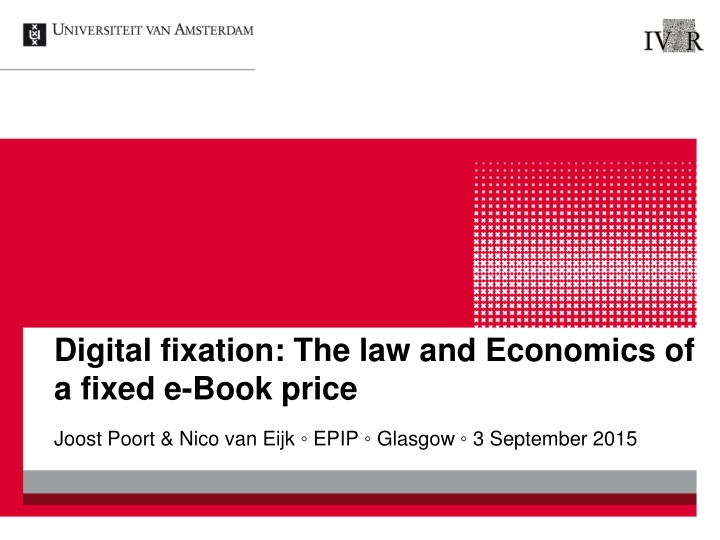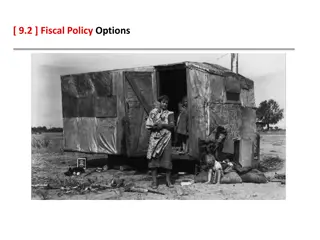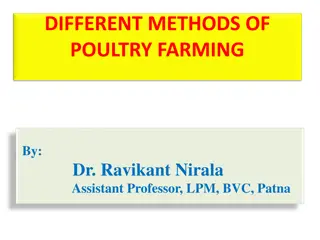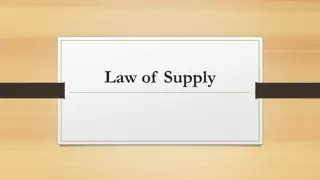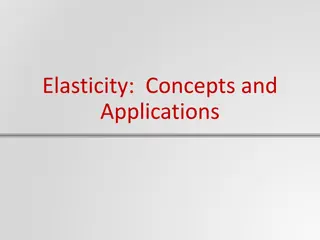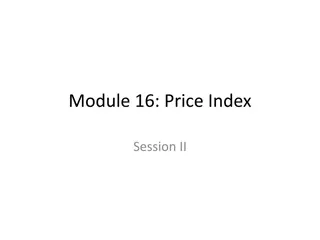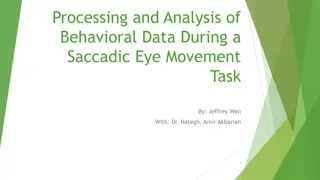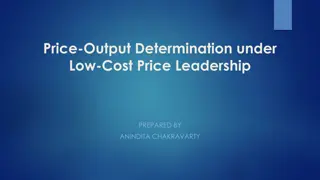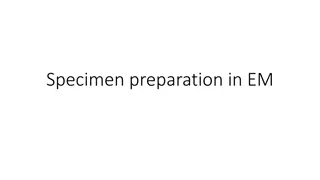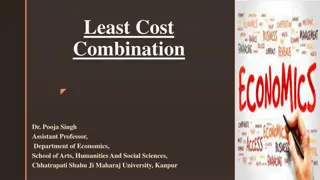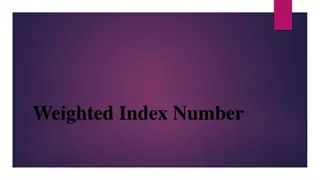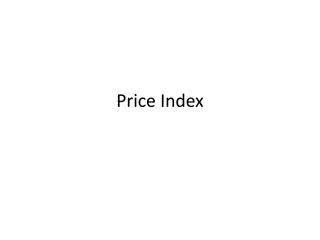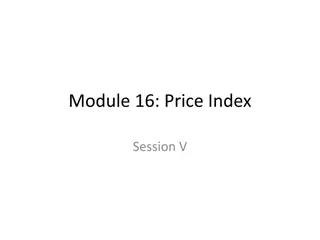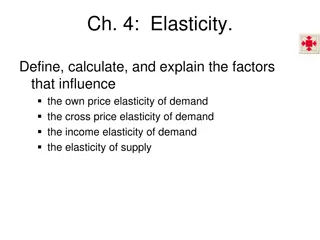Digital fixation: Law and Economics of Fixed e-Book Price
This book explores the legal and economic aspects surrounding fixed e-book pricing, shedding light on discussions from the event held in Glasgow on September 3, 2015. Contributors Joost Poort and Nico van Eijk delve into the implications of fixed pricing strategies within the digital landscape, offering valuable insights into this intricate subject matter.
Download Presentation

Please find below an Image/Link to download the presentation.
The content on the website is provided AS IS for your information and personal use only. It may not be sold, licensed, or shared on other websites without obtaining consent from the author.If you encounter any issues during the download, it is possible that the publisher has removed the file from their server.
You are allowed to download the files provided on this website for personal or commercial use, subject to the condition that they are used lawfully. All files are the property of their respective owners.
The content on the website is provided AS IS for your information and personal use only. It may not be sold, licensed, or shared on other websites without obtaining consent from the author.
E N D
Presentation Transcript
Digital fixation: The law and Economics of a fixed e-Book price Joost Poort & Nico van Eijk EPIP Glasgow 3 September 2015
Background: fixed prices for print books Books subject to price fixing or retail price maintenance (RPM) since 1829. Usually originated from agreements between publishers and booksellers. Arrangements in legislation over the years. Usual motivation: books are different : Special cultural and educational value, which justifies promoting the production, diversity, availability and consumption of quality books and promoting readership. Fixed books prices often considered to be a means to these ends: Helps small booksellers to survive, which supports availability and promotes demand. Allows booksellers and publishers to cross-subsidize between commercially more and less attractive titles. 3 September 2015 Institute for Information Law - IViR 2
Background: along came e-books What to do? Extend RPM to e-books? Do the same arguments apply? Or repeal existing legislation? Agency pricing: effectively RPM applied by large publishers in US and EU against Amazon s buying power, to prevent cannibalization of print, price erosion, pressure on wholesale prices. Abandoned after start of antitrust investigations. Research questions: What are the cultural and economic arguments and legal context of RPM for e-books? How should these arguments be weighted in light of the evidence? 3 September 2015 Institute for Information Law - IViR 3
Economics of RPM: theoretical arguments In perfectly competitive market, a manufacturer would not prefer RPM. Yet it used to be very common: >25% of retail sales in Canada & UK in 1960s Anti-competitive explanations for RPM: Retailer cartel argument Delays entry by discounters Manufacturer cartel argument: RPM as a way to monitor prices Foreclosure: RPM to convince retailers not to supply competing products Pro-competitive explanations for RPM: Service argument if sales service raises demand but free-riding occurs Avoid double marginalization problem Effect of retail availability on demand Effect on inventory Service as a signal of quality/luxuriousness 3 September 2015 Institute for Information Law - IViR 4
Economics of RPM: empirical evidence Depending market structure and demand characteristics, RPM can be pro- or anticompetitive: prices, service and social welfare may increase or decrease Empirical evidence: Price increase often observed but inconclusive; studies on quantity sold scarce. Ippolito (1991): collusion primary explanation in < 15% of RPM cases. Similar in Matthewson & Winter (1998), Cooper et al. 2005, Lafontaine & Slade (2008). Rule of reason approach as in US makes sense. In EU hardcore restriction under Block Exemption Regulation. Kretschmer (2014): anticompetitive RPM signaled by concentration in manufacturing, high adoption rate of RPM, dealer initiation 3 September 2015 Institute for Information Law - IViR 5
Fixed book prices are no remant of the past RPM for printed books Austria France Germany Greece Korea Norway Slovenia (2014) Spain Italy Japan Netherlands Portugal Luxembourg Mexico Israel (2013) RPM for e-books? Yes Yes Yes Yes Yes Yes Yes Yes No No No No N/A N/A N/A No RPM for books Australia Belgium Canada Czech Republic Denmark Estonia Finland Hungary Iceland Ireland New Zealand Poland Slovak Republic Sweden Switzerland Turkey United Kingdom United States Sources: Compiled based on IPA (2014), OECD (2012), Kurschus (2015), http://www.buchmesse.de/en/international/book_markets/, http://www.boekenvak.be/sites/default/files/EBF_surveyfixedfreeprices_112010.pdf. No information available for Chile. 3 September 2015 Institute for Information Law - IViR 6
Some characteristics of the publishing and book selling industries Publishing has high fixed costs and low marginal costs; nobody knows principle; reputation effects economies of scale and scope For e-books, decreasing costs and disintermediation exert opposing force Globally: six dominant publishers, 300-400 medium sized, 80 thousand small publishers. C50 > 80% Different books are imperfect substitutes monopolistic competition Love for variety at retail level, countered by skewed distribution of turnover. In The Netherlands, 13% of titles accounted for 90% of 2010 turnover. W.r.t. e-books: consumers require a complementary device lock-in, etc. E-books ~19% of US turnover, > 50% in some segments. UK 15%, much smaller market share elsewhere. E-books increasingly sold in flat-rate subscriptions 3 September 2015 Institute for Information Law - IViR 7
Economic analysis of RPM for printed books Policy motivations largely consistent with anti-competitive cartel argument: help small booksellers to survive, keep discounters away, generate higher profits for retailers and publishers to be used for cross-subsidization. No guarantee or evidence that any extra profits are indeed used to cross- subsidize. Due to nobody knows principle, publishers and retailers need to invest anyway. Most pro-competitive motivations do not seem to apply: Books are no complex or luxury products and search costs high compared to price of books Demand uncertainty resolved by right to return unsold copies. Double marginalization can be resolved by price ceiling Positive effect of wide presence of bookstores may still apply by loses importance as also print sales moves to the internet. 3 September 2015 Institute for Information Law - IViR 8
Economic analysis of RPM for printed books Very little and inconclusive/contradicting empirical evidence about the effect of fixed book prices on title production, number of bookstores, readership. Market structure also suggests anti-competitive explanations. Partly due to large country differences and lack of good data sets, even disputes about price development in UK after abolishing NBA. Bestsellers seem to gain from repealing RPM, low volume titles become more expensive. 3 September 2015 Institute for Information Law - IViR 9
Fixed prices for e-books: economic analysis For e-books, retailer-related arguments lose their direct relevance as the Internet provides access anywhere, anytime. Shelf space/inventory arguments irrelevant, hence cross-subsidization by retailer can be ruled out. Possible argument that fixed e-book price helps small retailers survive for print requires yet another uncertain cross-subsidization. Pro-competitive sales service arguments apply even less for e-books than for print. Only anticompetitive arguments remain, without no evidence that profits are reinvested in title production. Many opportunities for publishers and retailers to sidestep RPM for e- books: lending or streaming, enhancing e-books, sales per chapter. 3 September 2015 Institute for Information Law - IViR 10
Fixed prices for e-books: legal context EU law does not rule out fixed e-book prices in principle, but are subject to closer scrutiny: e-books are a service rather than a good and fixed prices may hamper the free movement of services. European Commission started an investigation against France but did not push through with a formal procedure. In 2015, French Minister of Culture announced subscription services are illegal: how can this be squared with the policy objectives? Commission opened antitrust proceedings against agency pricing in 2011, resulting in settlement to abandon it. 3 September 2015 Institute for Information Law - IViR 11
Conclusions and recommendations Economic theory and evidence increasingly supports pro-competitive use of RPM in general. Motivations for RPM for books remain anti-competitive, backed by a hope for socially efficient cross-subsidization, but with no guarantee or evidence. Yet, 15 OECD countries have fixed prices for printed books, and at least 8 for e-books as well. Case for RPM for e-books is weaker than for print, as retailer related arguments become irrelevant, while legal concerns can be raised. Most compelling argument for fixed e-book prices may be its contribution to a diverse retail market, but it is an oxymoron to allow publishers to fix retail prices to improve retail competition. Rather, general competition policy should be applied, along with other instruments to promote the production or consumption of books. 3 September 2015 Institute for Information Law - IViR 12
Thank you for you attention! Questions, comments? Full paper available at International Journal of Cultural Policy 3 September 2015 Institute for Information Law - IViR 13
